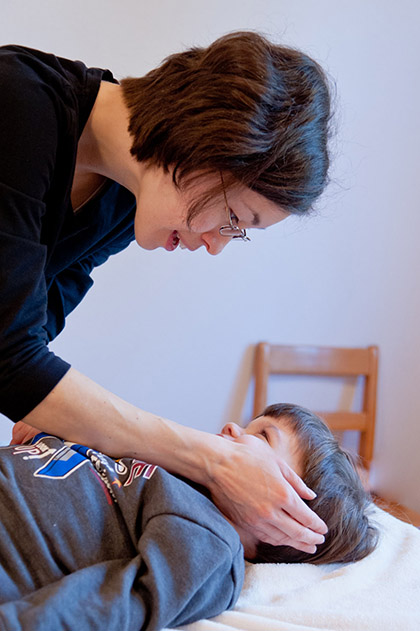Other Therapies
QST, ABA Behavioral Therapy, and Other Therapies for Autism
There are many therapies in use for young children with autism. We can understand how they differ by asking the following questions:
- What is the therapy for?
- Is it effective for language problems?
- Sensory problems?
- Behavior problems?
- Social skills?
- All of the above?
2. Is the therapy proven to work? Are there studies showing that children benefit from therapy when compared to control groups?
3. What is the parent time commitment (e.g. driving to appointments, providing therapy)?
4. How available is the therapy? Is it available in your area?
5. How much does the therapy cost?
Some therapies are not research-based, but rather, have been part of early intervention for a long time. They are not intended to cure autism, but to help families and children learn more and cope better with the disability. For example, occupational therapy helps families adjust the child’s sensory environment to the child’s sensory needs; speech therapy offers alternative ways to communicate such as the Picture Exchange Communication System.
The table below lists the research-based autism therapies for young children that have been shown to be effective for one or more aspects of autism, in one or both groups of children (high-functioning, low-functioning). The only therapy that has been shown in research studies to be effective for all aspects of autism and all severities of autism is qigong massage. This is because it is the only therapy that is effective for touch and other sensory disorders.
Therapy | Research Shows | Time Commitment | Availability | Cost |
ABA (Applied Behavior Analysis) | Children with less severe autism improve in language. Children with severe autism do not respond to therapy. Therapy is not effective for sensory, social, or behavioral aspects of autism | 20-40 hours/week | Scattered availability of therapists | High |
Diet | Some children improve, some children do not change | Extra time to shop and prepare meals | Available | Food may be more expensive |
QST autism massage | Therapy is effective for mild, moderate and severe autism. Children improve in all aspects of autism – sensory, behavior, social and language | 15 minutes/day | Scattered availability of therapists. Online support available. | Low |
Many therapies recognize that children with autism have allergies and sensitivities to foods and chemicals, which their siblings can tolerate without difficulty. The concept of toxic load is an important concept for parents trying to decrease exposure to foods and chemicals that aggravate their child’s symptoms. To read more about autism and toxic load, click the button.

